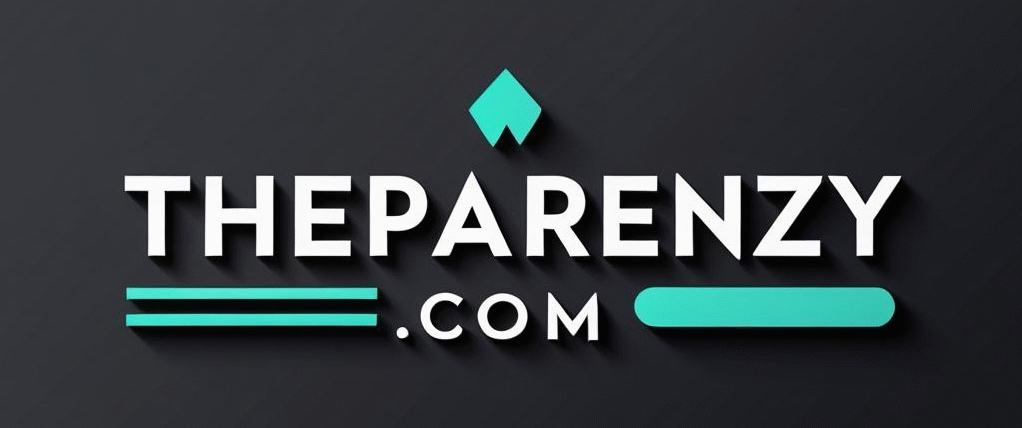
Welcoming a new life is joyful, but it can also bring unexpected emotional challenges. Many new moms feel sad, anxious, or overwhelmed during this time.
It’s hard to deal with these feelings, but you’re not alone. Effective self-care and support are key to managing these feelings. They help you transition into motherhood better.
Key Takeaways
- Understanding the importance of postpartum self-care.
- Recognizing the signs of postpartum depression.
- Exploring strategies for managing emotional well-being.
- The role of support systems in postpartum recovery.
- Practical tips for maintaining mental health.
Understanding Postpartum Depression: More Than Just “Baby Blues”

The ‘baby blues’ are common for new moms. But, postpartum depression is much more serious. It’s a mental health issue that needs care and attention.
Signs and Symptoms to Recognize
It’s important to know the signs of postpartum depression early. Look for sadness, hopelessness, and anxiety. Also, watch for changes in appetite and sleep problems. These symptoms are more serious than the baby blues.
The Difference Between Baby Blues and PPD
The ‘baby blues’ are mild mood swings that go away in a few weeks. Postpartum depression is much worse. It makes it hard for a mom to take care of herself and her baby. Knowing the difference helps us support moms better.
| Characteristics | Baby Blues | Postpartum Depression |
|---|---|---|
| Duration | Short-term, typically resolving within 2 weeks | Longer-term, can last months if untreated |
| Severity | Mild mood swings | Severe symptoms including sadness, hopelessness |
| Impact on Daily Life | Minimal impact | Significant impact, affecting daily functioning |
Knowing the difference helps us support new moms better. We can help them heal and recover from postpartum depression.
Tips for Managing Postpartum Depression: A Comprehensive Approach

Managing postpartum depression starts with early help and a personal plan. This way, new moms can face its challenges and feel better. It’s all about a big-picture plan for well-being.
Why Early Intervention Matters
Early help is key for postpartum depression. Studies show it can lessen symptoms and prevent lasting problems. Getting help right away opens up many treatment options, like therapy and medicine, made just for you.
Early action lets women take back their lives and care for their babies better. It also fights the shame around mental health, making it easier to talk and get support.
Creating a Personalized Management Plan
Creating a personal plan means looking at what you need and making a strategy. It should include lifestyle changes, support networks, and professional help.
A good plan is flexible and changes as needed. It should include regular health checks to see how you’re doing. By being proactive and personal, women can manage their symptoms and get better.
Seeking Professional Help: The First Step to Recovery

It’s important to know that asking for help is brave, not weak. It’s a big step in fighting postpartum depression. It’s a key part of getting better.
Types of Mental Health Professionals for PPD
Many mental health experts can help with postpartum depression. These include:
- Psychologists: They offer therapy and counseling.
- Psychiatrists: They do therapy and manage medicines.
- Licensed Therapists or Counselors: They use special techniques like CBT for PPD.
- Postpartum Support Specialists: They focus on postpartum help, giving specific advice and resources.
What to Expect in Your First Appointment
Your first meeting with a mental health expert is a chance to share your feelings. You will:
- Get a full check-up of your mental health.
- Talk about your symptoms, past, and any treatments you’ve had.
- Start a treatment plan, which might include therapy, medicine, or both.
“The first session is about understanding your needs and starting a recovery plan,” says Dr. Jane Smith, a perinatal mental health expert.
Questions to Ask Your Healthcare Provider
To get the best care, ask your healthcare provider these questions:
- How much experience do you have with postpartum depression?
- What therapy methods do you suggest, and why?
- Are there support groups or other resources you can suggest?
Asking these questions helps you understand your treatment choices. It helps you make smart decisions about your care.
Medical Treatment Options for Postpartum Depression

Dealing with postpartum depression needs many steps. Lifestyle changes and self-care are key. But, many women also need medical help to feel better.
Medication Options and Considerations
For some, medicine is a big part of their treatment. Antidepressants help with postpartum depression symptoms. Selective serotonin reuptake inhibitors (SSRIs) are often first because they have fewer side effects.
Choosing medicine should be talked over with a doctor. They will look at the good and bad sides, like how it affects breastfeeding.
Medicine works differently for everyone. Monitoring and follow-up with a doctor are key to making sure it’s working right.
Therapy Approaches That Work
Therapy is also very important for treating postpartum depression. Many types of therapy help manage symptoms and support recovery.
Cognitive Behavioral Therapy (CBT)
CBT helps by changing negative thoughts and behaviors. It teaches new ways to cope with symptoms.
Interpersonal Therapy (IPT)
IPT focuses on improving relationships and communication. It’s great for new moms who feel isolated.
Group Therapy Benefits
Group therapy offers a place to share and connect. It helps women feel less alone and builds a sense of community.
Combining medical treatments with lifestyle changes and self-care helps women manage symptoms. This way, they can work towards feeling better.
Essential Self-Care Strategies for Managing Symptoms
Dealing with postpartum depression can be tough. But, using self-care strategies can really help. It’s about finding what works for you and doing it every day.
Creating a Realistic Daily Self-Care Routine
It’s hard to start a self-care routine with a new baby. Begin with just a few minutes a day. Try reading, taking a warm bath, or doing deep breathing exercises.
Nutrition and Exercise for Mental Wellness
What you eat and how you move matter for your mind. Eat lots of fruits, veggies, whole grains, and lean meats. Even a short walk or yoga can lift your mood.
Sleep Management Techniques for New Parents
Sleep loss makes postpartum depression worse. Try to rest when your baby does. Share night duties with your partner. A bedtime routine helps your body know it’s time to sleep.
Setting Boundaries and Managing Expectations
It’s key to set limits. Tell family and friends what you can do. Don’t be shy about asking for help. Lowering your expectations about being a mom can also help.
| Self-Care Activity | Benefits | Tips for Implementation |
|---|---|---|
| Meditation or Deep Breathing | Reduces stress and anxiety | Start with 5-minute sessions, use guided apps |
| Physical Exercise | Improves mood, increases energy | Begin with short walks, postpartum yoga classes |
| Nutritional Balance | Supports mental health, energy | Meal prep, focus on whole foods |
Building Your Support Network
Being a new mom can be tough, and postpartum depression makes it even harder. But, having friends and family who care can really help. They can make a big difference in your life.
Communicating Your Needs to Partners and Family
Telling your partner and family what you need is key. Be open about how you feel. This way, you won’t feel alone and you’ll get the help you need.
It’s important to say what you need, like help with chores or someone to talk to. This makes your home a better place for healing.
Finding and Joining Postpartum Support Groups
Being part of a support group can feel like finding a community. Look for groups in your area or online. There, you can share your story and meet others facing the same struggles.
These groups are great because they offer a safe place to talk and get support. You’ll find people who truly get what you’re going through.
When and How to Ask for Help Without Guilt
It’s okay to ask for help without feeling bad. Remember, it’s alright to ask for a hand when you need it. Reach out to friends, family, or a mental health expert.
By asking for help, you avoid feeling overwhelmed. And you make sure you get the support you need to get better.
Practical Coping Strategies for Difficult Days
Dealing with postpartum depression needs a special set of tools. New moms must have many ways to handle tough days. These methods help with the emotional and mental struggles of postpartum depression.
Mindfulness and Relaxation Techniques
Mindfulness, like deep breathing and muscle relaxation, calms the mind. It’s great for busy moms because you can do it anywhere. Studies show it lowers postpartum depression symptoms and boosts mental health.
Managing Overwhelming Emotions and Thoughts
When you feel overwhelmed, it’s key to know how to deal with it. Writing in a journal helps you sort out your feelings. Talking to someone you trust also helps a lot. Plus, moving your body, like going for a short walk, can change your mood.
Creating Moments of Connection with Your Baby
Connecting with your baby is good for them and helps you feel better. Doing things like holding them close, reading, or singing can bring joy. These moments can help balance out the sadness of postpartum depression.
Digital Resources and Apps for PPD Management
Today, there are many apps and websites for moms with postpartum depression. Apps like Postpartum Support International and Happify offer tips, support, and learning tools. Using these digital helpers can give you more support on your way to feeling better.
By using these strategies every day, new moms can face postpartum depression’s challenges. They can work towards feeling better.
Long-Term Recovery: Setting Realistic Expectations
Recovering from postpartum depression takes time and effort. It’s important to set goals and celebrate small wins. A good recovery plan includes professional help and taking care of yourself.
Tracking Your Progress and Healing Journey
Keeping track of your recovery is key. Use a journal or app to log your mood and sleep. This helps you see patterns and talk to your doctor about your progress.
Preparing for and Navigating Setbacks
Setbacks happen, but you can handle them. Know what triggers them and watch for signs. Adjust your therapy or ask for more support when needed.
Celebrating Small Victories Along the Way
It’s important to celebrate small wins. Good days, successful therapy, or just getting up are all worth celebrating. These moments keep you motivated and moving forward.
Conclusion: Your Path Forward Through Postpartum Depression
Managing postpartum depression needs a full plan. Knowing about it, getting help, and taking care of yourself are important steps. These actions help you get through this tough time.
Dealing with postpartum depression means having a strong support team. This includes doctors, family, and friends. We want you to keep going on your recovery path. Use the tips and help we shared to find support.
Getting better from postpartum depression takes time and effort. Work with your doctor and loved ones to find ways to feel better. This way, you can handle it and feel better mentally.
Keep being kind to yourself and celebrate small wins. With the right attitude and help, you can beat postpartum depression. You can also do great as a new parent.
Read more; https://theparentzy.com/how-to-balance-work-and-parenting-without-burnout/
FAQ
What are the first steps to take when managing postpartum depression?
First, seek help from a professional. Then, make a plan that includes self-care and support. Don’t forget to consider medical treatment if needed.
How can we differentiate between “baby blues” and postpartum depression?
“Baby blues” are mild and short. Postpartum depression is severe and lasts longer. It needs medical help.
What self-care strategies are most effective in managing postpartum depression symptoms?
Start with a daily self-care plan. Focus on eating well and exercising. Also, manage sleep and set boundaries.
How can we build a strong support network for managing postpartum depression?
Talk to your partner and family about what you need. Join support groups. And don’t be afraid to ask for help.
What are some practical coping strategies for difficult days?
Try mindfulness and relaxation. Manage your feelings and thoughts. Connect with your baby. Use apps for help.
What are the benefits of therapy in treating postpartum depression?
Therapy like CBT and IPT works well. Group therapy offers extra benefits. It helps a lot.
How can we track our progress and healing journey during postpartum depression recovery?
Watch your symptoms and celebrate small wins. Know when to adjust your plan. It helps you stay on track.
What lifestyle changes can we make to support postpartum depression recovery?
Focus on self-care and eat well. Exercise and sleep enough. These changes help a lot.




